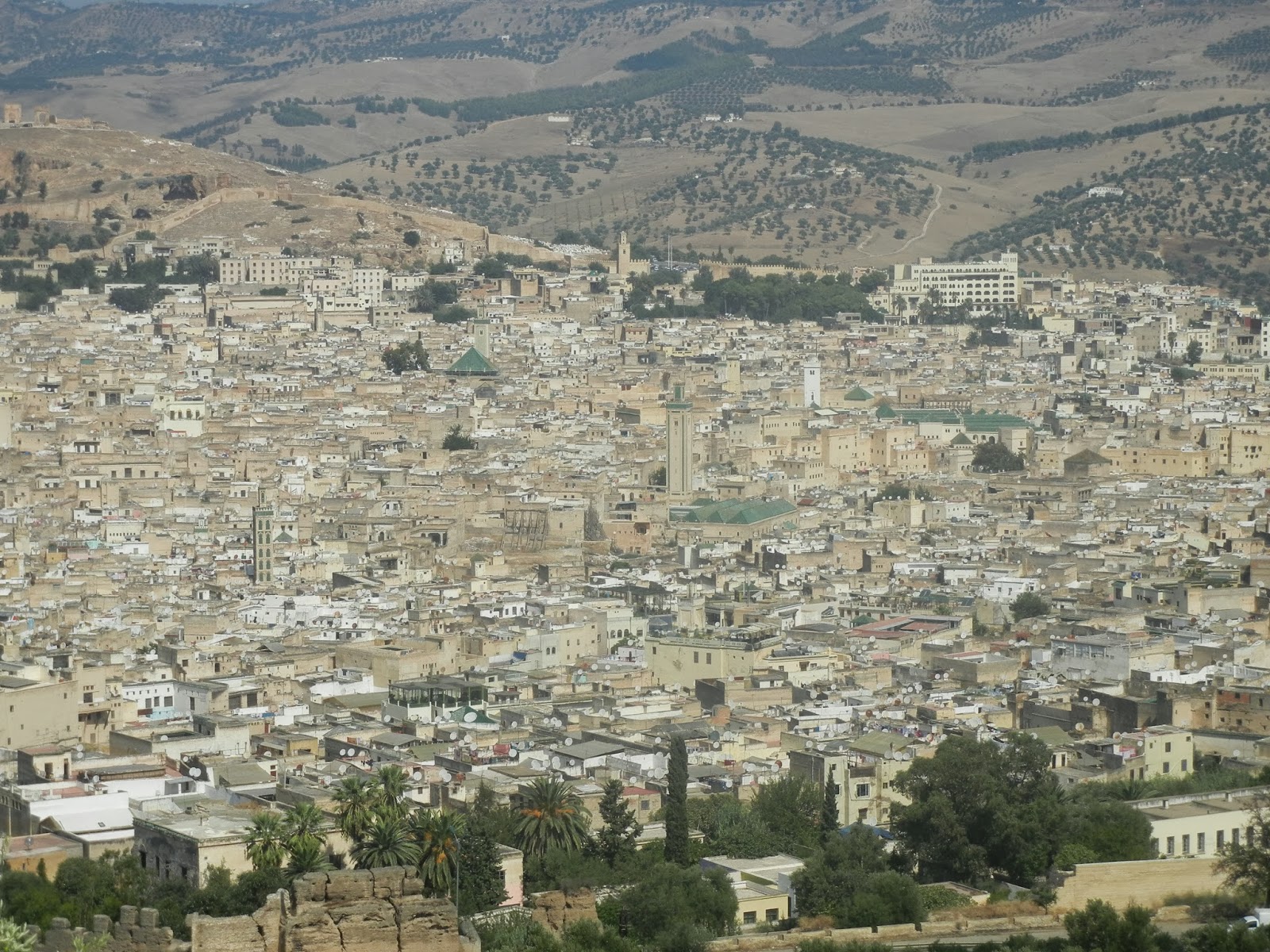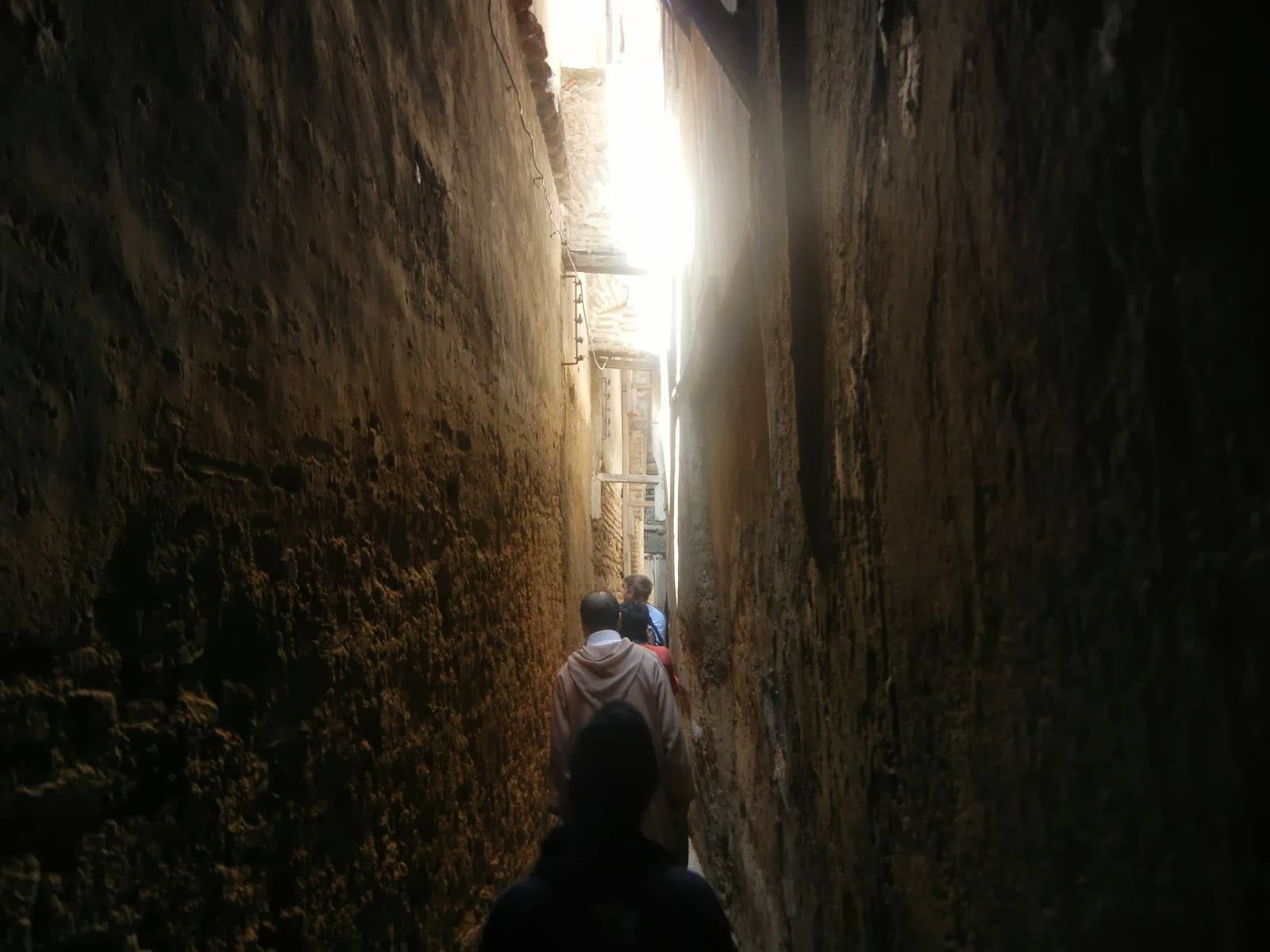Below I've posted two of the articles I've written during my time here along with the first draft of my independent study pitch! I'll have an Eid post soon!
Sugar in Moroccan
Diet Causing Major Health Concerns
by Granger Tripp
Words: 395
Four oversized sugar cubes sit atop the mint leaves resting
at the bottom of Fatima Hasson’s tin teapot. The
taste is tough to beat – the cool refreshment of mint combined with the sugar’s
sappy sweetness.
But, the excessive sugar consumption in the Moroccan diet
comes at a price. The rate of diabetes is high in the country and is expected
to double by 2030, according to the World Health Organization.
“About one and a half million people suffer from diabetes in
our country,” said Dr. Jamal Belkhadir, President of the Moroccan League for
the Fight Against Diabetes, in an article he published earlier this year.
“The
latest national estimates now reach nine percent for those older than 20 years,” he said. “And if we
consider the age beyond 50 years, the prevalence exceeds 14 percent.”
On top of this, Dr. Belkhadir approximates that almost 50
percent of diabetics don’t know they suffer from the disease due to lack of
awareness and proper screening.
“The diagnosis of diabetes is usually made on the occasion of
suggestive symptoms,” he said. This means the
disease often progresses before it’s treated causing other complications such as hypertension,
infection and blindness.
For breakfast, Fatima offers her family sweetened tea or
coffee, a baguette with butter and apricot jelly spread on top. As a side, five
or six crème-filled cookies lay in a pile on the tray. It’s not her intention
to serve a breakfast that lacks nutritious value, for her it’s simply what
makes sense.
After
53.4 billion dirhams, about $6.5 billion, in government subsidies, sugar, flour
and oil have been made cheaply available to Moroccan families.
Dr. Belkhadir believes the answer lies in educating the
Moroccan public about their eating habits and
the consequences those choices have on their health.
“Education
should be considered, and rightly, as one of the most important pillars for the
treatment and care of diabetes,” he said.
However,
it may not be that simple, considering that less than 70 percent of Moroccans
are literate, a percentage that drops even lower among women and in rural
populations.
Creating
a public that is well informed on the food choices it makes and the health
consequences will take time, energy and money. With the focus of the government
turned to issues like unemployment, education
and health care, a food revolution
doesn’t appear to be on the horizon.
Rural Moroccan
Farmers Would Benefit From Insurance Coverage
by Granger Tripp
Word count: 466
Rachid Lazaar, 26, needs only a steady flow of water and a
small hoe to flood his entire field before the next crop is planted. He carves
countless narrow valleys into the barren land to funnel the water exactly where
he needs to go, it seems more a work of art than fieldwork.
With the hottest and driest part of the year over, watering
his land like this is a relief for Lazaar. Drought is a dangerous reality for
small, rural farmers in Morocco and it appears he has escaped it, at least this
year.
“I’m lucky,” Lazaar says. “The region where I work doesn’t
suffer too much from drought, it’s very rich agricultural land.”
During a drought season, farmers get little to no yield from
their land, drastically reducing or eliminating revenue. With less money in
their pockets, farmers are forced to cut back on spending the next growing
season, starting a vicious cycle.
Drought also has consequences beyond just the farmer’s lives
in the fields. It also means less money for their families to spend on food,
clothes and supplies.
To supplement his farming, Lazaar has a second job as a
metal worker. Although the income he gets from this job is less, it is steadier
than what he makes doing farm work. This allows Lazaar some breathing room when
he doesn’t reach his desired yield.
The volatility of the rural economy could be drastically
reduced for small farmers, like Lazaar, if they were able to purchase insurance
coverage for their land. However, these farmers are often overlooked by
insurance companies who concentrate on insuring the country’s largest
landowners.
“The service I can afford doesn’t guarantee full coverage of
what I’ve lost,” Lazaar says,
highlighting the disconnect between what coverage rural farmers need and
what insurance companies offer them.
Studies show that the implantation of rain-based insurance
for small, rural farmers in Morocco could combat the instability within the agricultural
sector of the economy. One such study, done in 2001 by The World Bank, found
that these programs “could have potentially significant benefits” for farmers and
could go even further by “increasing the potential interest of international re-insurers
and capital markets in investing.”
This
seems as though it would be quite appealing to the Moroccan government as it
strives to accomplish “Plan Maroc Vert (The Plan for a Green Morocco).” This
initiative aims to double the value of the country’s agricultural sector, which
currently sits at 19% of the GDP, while adding 1.5 million jobs to it by the
year 2020.
However,
until small farmers, like Lazaar, can find a way to protect themselves from the
volatile economy they work within, “Plan Maroc Vert” will be merely relying on
good growing seasons rather than the farmers who give life to the country’s
agricultural sector.
Granger Tripp
ISJ Pitch: Draft 1
William S. Burroughs shooting heroine and writing his
masterpiece, Naked Lunch, in the city
of Tangier, Jimi Hendrix conceiving the guitar riffs that brought him such fame
in the town of Mirleft, and the Living Theater perfecting their experimental
fusion of art and performance in Essaouira. While it’s an often-overlooked part
of the Morocco’s history, American counterculture runs deep in the veins of the
country and is still present today.
What made Morocco so appealing? An Islamic country, with
strict rules and harsh punishments for the sex, drugs and liberal lifestyle
these counterculture icons are so known for seems like the last place they
would want to go. How did the country affect their work? And how did they
affect the country?
By interviewing counterculture experts, seeing the places
these artists spent time, and searching for those who fell so in love with the
country that they never left, this story will tell a muted history of Morocco and
the hub it once was for the freethinkers of America’s past.









